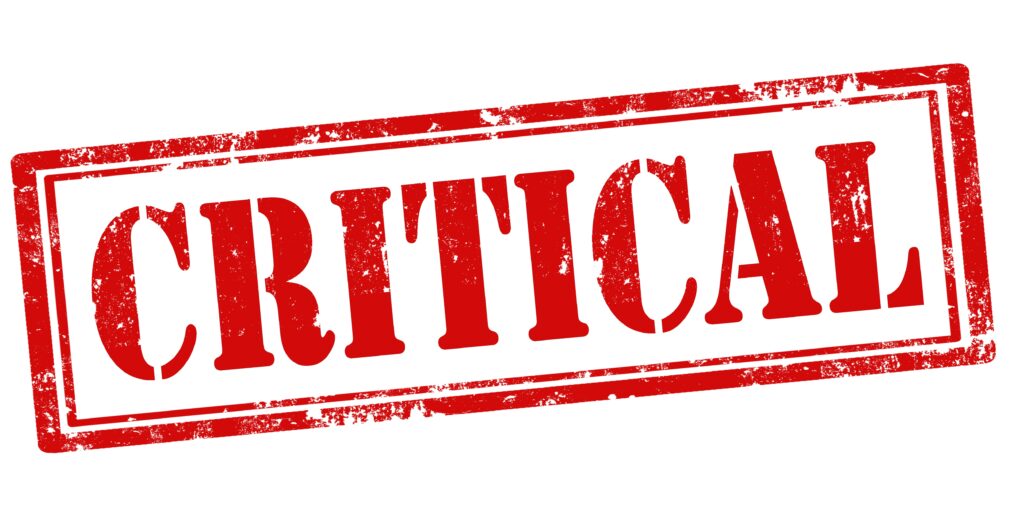Everyone makes mistakes. But, there are some critical affiliate marketing mistakes that you must avoid at all costs.
Truly successful affiliate marketers learn from their mistakes and the mistakes made by their peers.
Here are some of the most critical affiliate marketing mistakes that can be made without even realizing it.
Knowing these dangers will empower you to optimize your path to success.

You Are Not Building an Email List
Not building an email list tops our list of the most critical affiliate marketing mistakes that can be made.
Your email list is the single most effective way to market your affiliate offers.
If you aren't capturing the contact details of your audience, then you are missing opportunities to market your offers to them.
You can make a one-time sale if your content is full of affiliate links. But you may never see that potential repeat customer again.
You Ignore SEO
Learning how to rank your content is critical to your success. If people cannot find you, they cannot follow you or see your product offerings.
Organic traffic is awesome, but it takes time to build and promote.
Use SEO keyword tools such as KWFinder or SEMRush to find exact match keywords.
Use keywords that are relevant to your content. But check to see what the competition is for that keyword. If you get buried in search results on the second or third pages, it is the same as not having any content at all.
Hardly anyone ever goes past the first page of search results.
Also, don't forget to use long-tail keywords.
Typically, long tail keywords are more specific and more likely to match a search term your audience will seek. They are also less competitive, so they allow you to rank better with search engines.
You Didn't Define Your Customer's Avatar
Who are you trying to sell to?
You absolutely should know who your ideal customer is.
And you can figure this out by defining a customer avatar.
What is a customer avatar and why is it important?
A customer avatar is a very specific definition of your ideal customer. The more specific it becomes, your messaging and offers will be clearer for your ideal customer. There are many strategies to figure this out and the subject of another post.
If you have a product to sell, you have a specific customer in mind that you want to sell it to.
That particular customer defines your niche just as much as the niche you choose defines your ideal customer.
Ultimately, your customer avatar is a detailed description of who will benefit the most from your offers.
You Chose the Wrong Niche
Niche is one of the most important factors when you are marketing products online.
Not all niches attract the same types of traffic and engagement.
Some niches attract an audience that just wants quick information. They aren't coming to your site to buy anything; they just want the quick information, then leave.
These types of sites may attract a lot of traffic. As a result, they are ideal for contextual advertising but not affiliate offers.
Some examples of these quick information niches:
- Sports News
- Software Cracks and Game Cheats
- Movie and Music Industry Gossip Sites
Furthermore, choosing a niche you are not interested in is a recipe for failure.
Maybe you chose the niche because there is little to no competition.
But, if you aren't passionate about that niche, you will find yourself unmotivated to put the proper energy into it. And your audience will figure that out fairly quickly.
You Only Market Big Commission Offers
This particular topic is the subject of much debate. We can all agree that getting a big commission from a single conversion is really awesome.
However, bigger commissions typically come from costlier products. So, relatively speaking, the conversions will be lower because people just don't make big-ticket purchases very frequently.
So, focus on marketing products that people buy regularly.
Even better, promote products with a recurring commission. Getting steady monthly commissions from a single customer provides for a much more predictable income.
Getting 10 sales with a $10 commission per day is much more attractive than getting 1 sale a week with a $100 commission. Not that you cannot do both, but you shouldn't put all of your eggs in one basket, so to speak.
Now, if your offers are targeted at the wealthy or entrepreneurial market, then obviously that advice isn't completely relevant. But, your offer should start with a lead-in or smaller ticket commission that can be followed up with an upsell or scaled over time.

You Only Focus on Making Money
If you only focus on making money, your audience will figure that out really quickly. This is absolutely one of the ugliest aspects of affiliate marketing.
Money should not be your primary objective with your content.
Approach your product promotions by asking yourself, does this product solve a problem for my audience?
If it doesn't, it's not a good product to promote.
Not to say that it's a bad product, but it's not for your audience.
Likewise, there are a lot of bad scam products out there. So, it is important to do your homework.
Your objective should be to provide value to your audience.
You want them to keep coming back to your content.
Promoting products just for the commissions is unethical. Promote products that you would purchase or have purchased for yourself. Thoroughly research the product and the seller. If you promote scam offers, then your audience will lose confidence and stop following you.
You Focus on Quantity Over Quality
As the saying goes, content is king. And you have likely read or been told that you need a certain amount of content to attract and retain an audience.
While this is true, that content should be of high quality. If your aim is to publish 5 offers a week in your content, make that 5 high-quality articles.
If you cannot take the time to put in the quality work, then scale back your output schedule, or better yet, hire someone to help you with your content production.
You Don't Leverage Available Affiliate Resources
Most affiliate programs and networks have resources to help their affiliates make sales.
The best offers to promote include well-tested affiliate tools such as email swipe files, compelling sales copy, and a well-tested funnel.
You Don't Update Your Old Content
You must update your older content and keep it relevant.
From affiliate links to external links, product images, headline dates, and page metadata. You need to keep these details fresh to keep up your page rank.

You Don't Test Your Offers
This one is near and dear to my heart.
As a consumer, few things are worse than getting really excited about an offer.
You are ready to buy with your credit card in hand.
Then the offer funnel bombs out before you can complete your purchase.
Would you go back to that offer?
Quite likely, you will go somewhere else or change your mind about the purchase.
You Are Not Authentic
One of the single most critical affiliate marketing mistakes you can make is not being authentic, open, honest, and truthful with your audience.
Your audience follows you because you have earned their trust.
Don't abuse that trust.
If a product or offer is terrible, tell your audience. And do not promote it!
And, if it is awesome? Definitely, tell them that too!
Closing Thoughts
We all make mistakes.
What we learn from those mistakes and what we learn from others that have made mistakes; can make a significant impact on our marketing success.
If you can learn from this list and not make the same critical affiliate marketing mistakes.
Then, you will be better off than most starting out in affiliate marketing.
